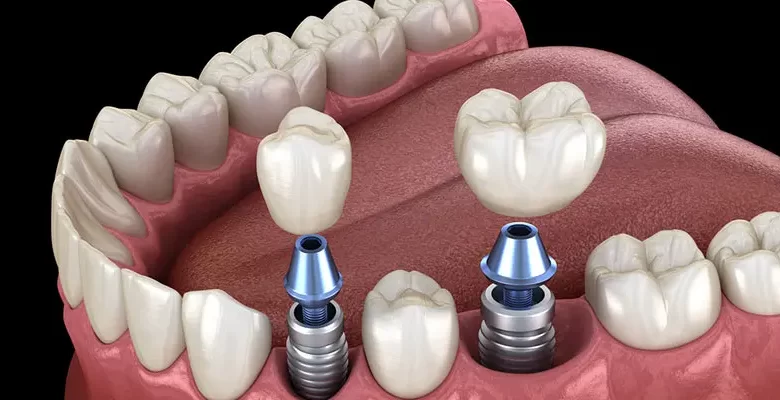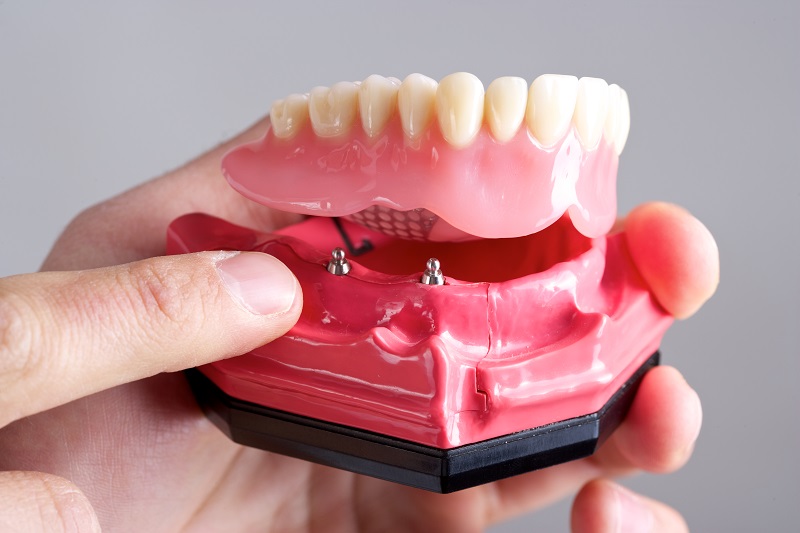Are Dental Implants Permanent? What to Expect Long-Term

The greatest alternative for replacing missing teeth at the moment is dental implants. A dental implant can serve as an anchor for a bridge or dentures, or it might replace a single tooth. Dental implants have several advantages, one of which is their durability. The most durable tooth replacement option on the market is an implant.
What is the lifespan of dental implants? Here’s what to anticipate when you visit an implant dentist in Ottawa.
Are dental implants permanent?
The purpose of dental implants is to permanently replace lost teeth.
However, a shorter lifespan can result from a few illnesses or difficulties. You can better understand why the lifespan of this dental care option can vary if you understand how the implant functions.
The dental implant is composed of three parts:
- A titanium post that resembles the robust attachment of a natural tooth root is inserted into the jaw.
- A custom-made tooth restoration that attaches to the abutment for a replacement that looks natural and is simple to clean; • An abutment, the portion of the post that extends over the gum line so that the upper half can attach.
- This is a permanent solution since the titanium post is made to merge with the jawbone through a process called osseointegration.
However, the dental implant’s actual lifespan is a little more nuanced and may differ depending on your secondary disorders and underlying oral health.

What are some ways to make dental implants last longer?
A dental implant does require some simple upkeep on your part in order to last for many years. As an illustration,
- Brush and floss your teeth. Maintain proper dental hygiene practices. You must follow the practice of flossing once a day and regularly brush twice a day. Everyone, not just those with dental implants, should do this. However, sustaining your dental implant depends on how well you take care of your teeth. Maintaining the health of your gums and other teeth, which directly support your dental implant, is important even though it is impervious to decay.
- Go to the dentist every 6 months. Maintaining regular dental checkups is also essential to the longevity of your implant. Your implant will remain firmly in place if you maintain healthy gums and clean teeth. These tests can help in detecting any possible problems around gums that can affect the longevity of your implant.
- Avoid smoking. One of the biggest threats to the health of your dental implant is smoking. Your implant may never firm because it limits blood flow in the gums’ vessels, which can interfere with osseointegration and the healing process.
- Live a healthy lifestyle. Maintaining your health is crucial for your oral health as well. Bone health is important because your jaw might not be able to support your implant and your other teeth as well if your bones deteriorate. With your doctor’s permission, take vitamins and supplements, particularly calcium and potassium for healthy bones.
What Causes an Implant to Fail?
A dental implant’s likelihood of failing is increased by a few things. Among these are:
- Missing bone tissue in the jaw happens when a tooth is lost for an extended length of time and the jaw tissue regrows on its own.
- Failure to do daily flossing and twice-day brushing after the implant is in place.
- Grinding your teeth can be lessened by using sleep guards that are properly fitted to avoid damaging the implant.
- Smoking, including using vaping equipment.
- The use of numerous common drugs, such as immunosuppressants and blood thinners.
- Underlying illnesses such as osteoporosis, diabetes, heart disease, or a compromised immune system.
Conclusion
For the best dental care, make sure you only engage with a restorative dentist who is highly skilled and experienced.
Maintaining dental hygiene at home, scheduling follow-up appointments, and adhering to post-care instructions are all essential.
For permanent tooth replacement, dental implants are dependable, long-lasting, and aesthetically pleasing.




